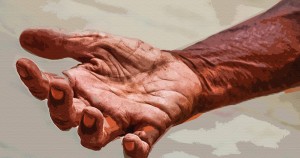My family isn’t in a position to take in any Syrian refugees.
Not that we’ve been asked.
Months ago, President Obama simply announced that “we” would take 10,000 refugees. After last Friday’s terrorist attack in Paris, and upon evidence that one of the perpetrators came into Europe with other refugees, 31 governors declared that their states will not accept Syrian refugees.
But note: this country doesn’t belong to Obama; those states don’t belong to those governors.
Back in September, I floated a different approach. “If I were president, I’d push for Congress to pass legislation specifically authorizing the acceptance of as many Syrian refugees as [Americans] stepped forward to sponsor. . . .”
“Sponsors could be individuals, families, churches, glee clubs, what-have-you, and would agree to cover costs for the Syrian person or family for one year or two or three,” I proposed. “But no welfare, no food stamps, no government housing. . . .”
Granted, my suggestion came before the latest terrorism. It was aimed not at security concerns but at sparing taxpayers. Why shouldn’t voluntary generosity dictate the extent of “our” generosity?
But come to think of it, my plan offers greater security, too. Why? It involves the personal faces of citizens, not merely a faceless bureaucracy. No matter how much vetting the government does, an ongoing link to an actual American provides another check.
There’s a legitimate debate about security vs. compassion. Millions are in need, displaced by terror — from both Daesh (ISIS) and the Assad regime. The Niskanen Center’s David Bier notes the resistance to accepting Jewish refugees prior to and during World War II, out of fear some might be spies. Christians may find Matthew 25:44-45 compelling.
On the other hand, there is undeniable risk. GOP presidential aspirants have called taking Syrian refugees “insane” and “looney.” Speaker Paul Ryan argues for a “better safe than sorry” pause.
Me? I support accepting the risk . . . but only if committed individual citizens step forward.
Not by any politician’s decree.
This is Common Sense. I’m Paul Jacob.
Artwork based on original photo by Phil Warren on Flickr (endorsement of this message is not implied):




